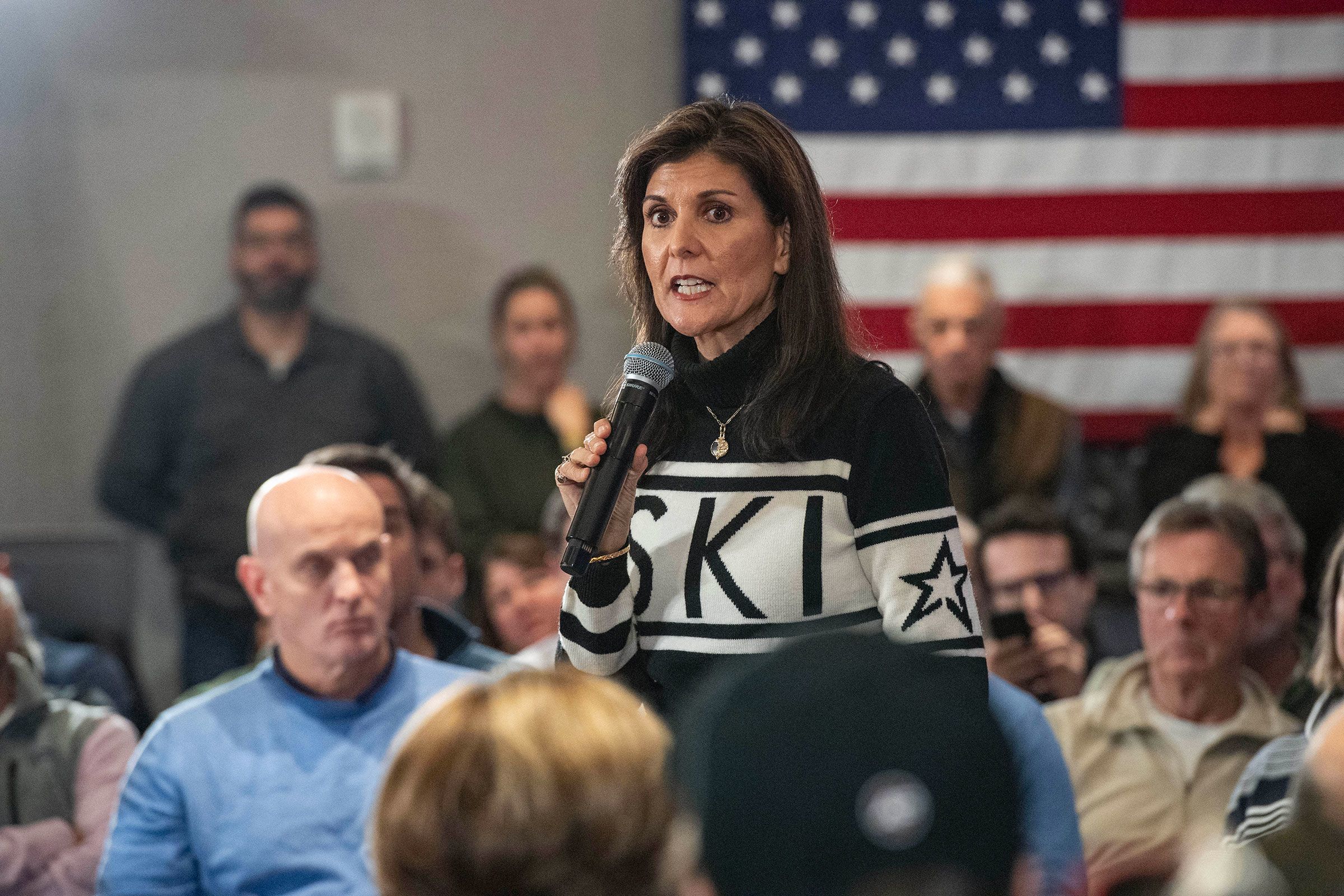The initial surge of Nikki Haley’s presidential campaign seems to have subsided. The former South Carolina governor, once a rising star, is now under intense scrutiny from both her Republican rivals and the electorate. This shift was evident during her recent visit to New Hampshire, where she faced criticism for her response to a question about the cause of the Civil War and her reluctance to criticize former President Donald Trump.
Haley has demonstrated an ability to attract independents and moderates by avoiding culture war battles, advocating for consensus on contentious issues such as abortion, and steering clear of controversy. While these traits have made her an attractive general election candidate, they have also led to unforced errors, awkward clarifications, and tense interactions with voters ahead of the official start of the primary next month.
These missteps have undermined one of her campaign’s key messages: that she is a candidate willing to voice what others are afraid to say. Haley, however, insists that she is not a flip-flopper, but someone who speaks hard truths, regardless of their popularity.
Despite her assertions, Haley has faced tough questions from voters, many of which are drawn from her own history or criticisms from opponents. She has also been asked repeatedly about whether she would pardon Trump or accept a position as his vice president, spurred by comments from other candidates such as Chris Christie and Ron DeSantis.
Other political figures have also weighed in on Haley’s campaign. Florida Governor Ron DeSantis described Haley’s initial remarks on the root causes of the Civil War as an “incomprehensible word salad,” suggesting she is not “ready for primetime.” Democrats, including President Joe Biden and Democratic National Committee chair Jaime Harrison, have also criticized Haley’s comments.
Despite the increased scrutiny, Haley’s campaign attributes the attention to her rising popularity in the polls. They argue that she is the only candidate with momentum, which has made her a target for both Republicans and allies of Joe Biden.
However, it remains unclear how Republican primary voters will react to these developments. Some voters, like Teresa Frey, who saw Haley in Plymouth, New Hampshire, thought the Civil War question was “random” and seemed designed to throw Haley off her game.
Meanwhile, other candidates, such as Chris Christie, have used Haley’s stumbles to their advantage. Christie accused Haley of being “unwilling to offend anyone by telling the truth,” and suggested that her reluctance to take a firm stance on controversial issues would make her unable to stand up to foreign adversaries, members of the other party, or divisive forces within her own party.
The scrutiny on Haley’s campaign highlights the challenges she faces as she tries to navigate the complexities of a presidential race. As the campaign continues, it remains to be seen how she will respond to these challenges and whether she can regain her initial momentum.

